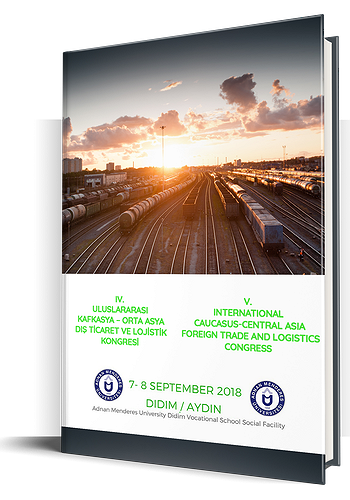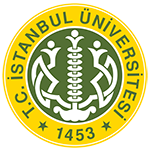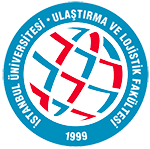
Ulaştırma ve Lojistik Kongreleri
- Türkçe
- Tam Metin
- 2018
Küresel Kriz Sürecinde İmalat Sanayi Alt Sektörlerinde Verimlilik Değişmeleri ve Rekabet Gücü İlişkisi
Gonca Akgün Güngör
Dr. Öğr. Üyesi, Muğla Sıtkı Koçman Üniversitesi, Muğla, Türkiye
Geleneksel ticaret teorileri, dış ticarette karşılaştırmalı üstünlüğü işgücü verimliliğindeki artışa ve maliyetlerdeki azalmaya dayandırmaktadırlar. Yeni ticaret teorileri ile birlikte teknoloji ve nitelikli işgücü gibi faktörlerin de modele dahil edilmesi, uluslararası rekabet gücü açısından verimlilik ve etkinlik kavramlarının önemini ortaya koymaktadır. Nitekim literatürde, işgücü verimliliğinin karşılaştırmalı üstünlüğün dolayısıyla da rekabet gücünün önemli bir belirleyeni olduğu farklı ülke örnekleriyle vurgulanmaktadır. Türkiye İmalat Sanayi, 1980’den itibaren başlayan ve 1996 AB ile Gümrük Birliği Anlaşmasının ardından daha da şiddetlenen bir uluslararası rekabet süreciyle karşı karşıya kalmıştır. Özellikle 2002 yılından itibaren, imalat sanayi ihracatında belirgin artışlar yaşanmaya başlanmış ve sektörün uluslararası rekabet gücü nispeten artış göstermiştir. Bu süreçte, sektörde yapılan yatırımlar ile kısmen faktör yoğunluklarının değiştirilmeye çalışıldığına ilişkin göstergeler olsa da 2008 Küresel Krizi sektörü yeniden faktör yoğunluğuna dayalı rekabet süreci içerisine çekmiştir. Bu çalışma, teknoloji yoğunluklarına göre sınıflandırılan Türkiye imalat sanayi alt sektörlerinde işgücü verimliliğindeki değişmelerin uluslararası rekabet gücü üzerindeki etkisini araştırmayı amaçlamaktadır. Bu amaçla, 2003-2015 döneminde düşük ve yüksek teknoloji yoğunluğuna sahip sektörlerin rekabet gücü Ticari Uzmanlaşma Endeksi hesaplanarak ortaya konulmuştur. Panel Veri Analizi sonuçlarına göre; düşük teknoloji yoğun sektörlerde işgücü verimliliğindeki artış rekabet gücünü olumlu etkilerken, yüksek teknoloji yoğun sektörlerde aynı etki tespit edilememiştir. İncelenen dönemin 2008 Küresel Krizinin etkilerinin şiddetli olarak yaşandığı bir dönem olduğu dikkate alındığında, küresel ekonomik konjonktürün rekabet üzerindeki etkileri verimlilik değişmelerinin etkilerinin tam olarak yansımasına imkân tanımamıştır denilebilir. Buna göre, düşük teknolojili emek yoğun sektörlerde işgücü verimliliğinin arttığı, bunun rekabet gücünü olumlu etkilediği; ancak, yüksek teknoloji yoğun sektörlerde verimlilik değişmelerinin rekabet gücüne etkilerinin tespit edilemediği sonucuna ulaşılmıştır.
Anahtar Kelimeler: İşgücü Verimliliği, Toplam Verimlilik, Uluslararası Rekabet Gücü, Küresel Kriz, Teknoloji Yoğunluğu
In The Process of Global Crisis the Relationship Between Productivity Changes and Competitiveness in the Manufacturing Industry Sub-Sectors
Traditional trade theories rely on the comparative advantage in foreign trade to the increase in labor productivity and the decrease in costs. The inclusion of factors such as technology and skilled labor, along with new theories of trade, further demonstrate the importance of productivity and efficiency concepts in terms of international competitiveness. As a matter of fact, the current literature emphasizes that labor productivity is an important determinant of the comparative advantages and the fact that competitiveness with samples of different countries. Turkey Manufacturing, starting from the 1980s and after the 1996 Customs Union Agreement with the EU has remained more faced with intensifying international competition process. Particularly since 2002, significant increases have been experienced in manufacturing industry exports and the international competitiveness of the sector has increased relatively. In the meantime, the 2008 Global Crisis has pulled the sector back into the competition process based on factor intensity, although there are signs that the investments made in the sector and partly attempted to change factor intensities. This study aims that examine the effects of changes in labor productivity on the international competitiveness in the Turkey's manufacturing industry sub-sectors classified according to the technology intensity. For this purpose, in the period of 2003-2015, the competitiveness of manufacturing industry subsectors with low and high technology intensity was calculated using Trade Specialization Index. According to the results of panel data analysis, the increase in labor productivity in the manufacturing industry subsectors with low technology intensity affects the competitive power positively whereas the same effect can not be detected in the sub-sectors with high technology density. Given that the period studied is a period in which are experiencing the severe effects of the 2008 Global Crisis, it can be said that the effects of global economic conjuncture on the competitiveness does not allow the full reflection of the effects of productivity changes. According to this, in the sectors with low-tech labor intensive production, labor productivity increases has a positive impact on competitiveness, but in sectors with high technology intensity, productivity changes are not able to determine the effects on competitiveness.
Keywords: International Competitiveness, Global Crisis, Technology Density, Labor Productivity, Total Productivity

IV. International Caucasus-Central Asia Foreign Trade and Logistics Congress Proceeding Book
E-ISBN: 978-605-68889-0-8
Sayfa: 935-947

Bu çalışma, kullanan kişilere orjinal çalışmadan alıntı yaptıkları sürece, çalışmayı dağıtma, değiştirme ve üzerine çalışma hakkı tanıyan Attribution 4.0 International (CC BY 4.0) lisansı ile lisanslanmıştır.
İletişim
İstanbul Üniversitesi Ulaştırma ve Lojistik Fakültesi
İ.Ü. Avcılar Kampüsü 34320 Avcılar/İstanbul
ulk@istanbul.edu.tr
+ 90 (212) 440 00 00 - 19200


